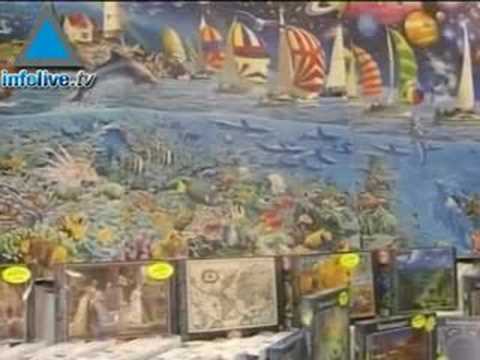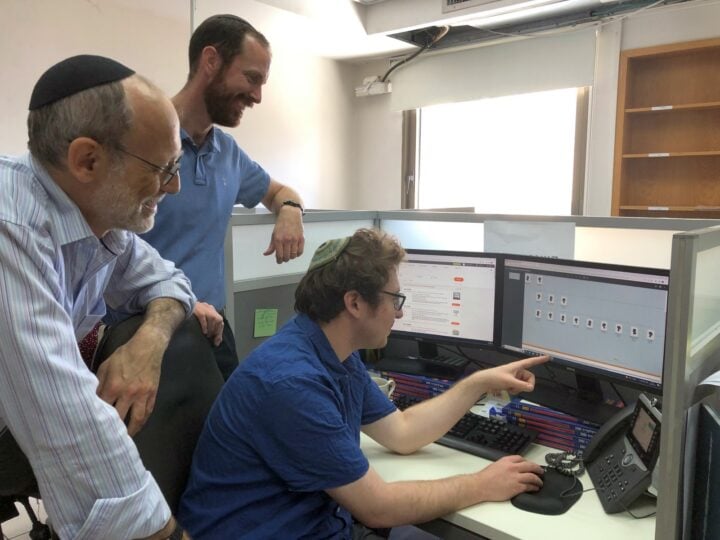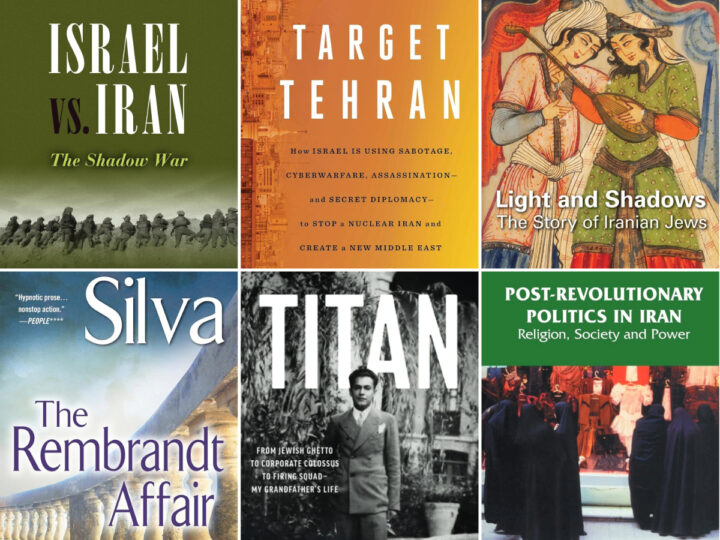With sales of some 1.2 million puzzles annually, Israelis are among the world’s leading jigsaw puzzle enthusiasts.
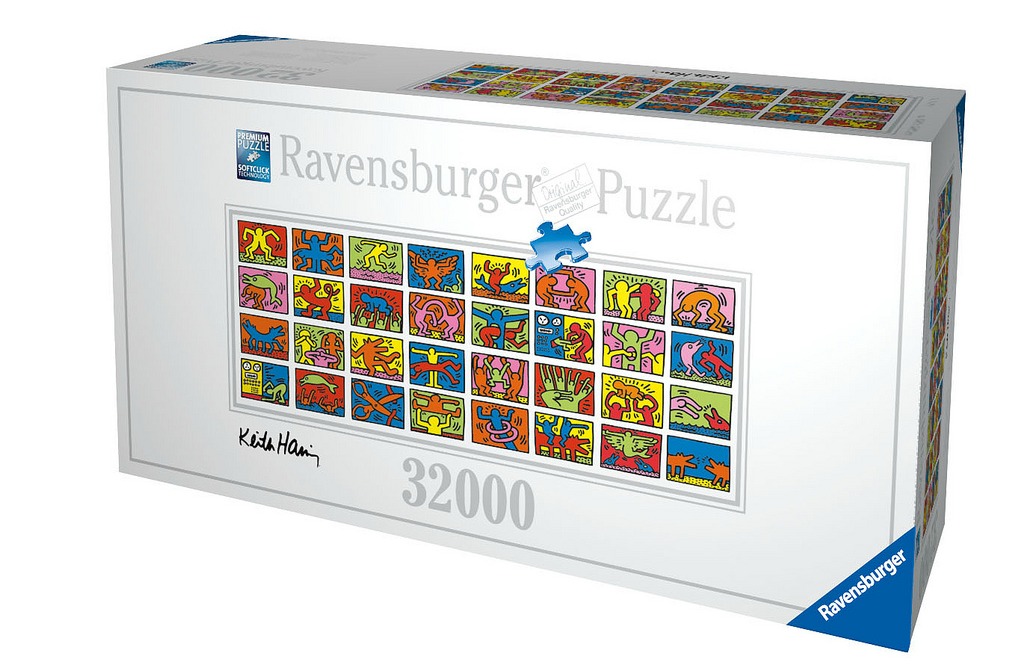
Go into any household in Israel and you’ll find the exact same pictures of charming landscapes, Disney characters and famous buildings. Some are up on walls for display but most of these images are in pieces and packed in boxes.
Israelis are among the world’s top jigsaw puzzle enthusiasts.
“Everyone does puzzles in Israel,” Yossi Bar-on, the country’s unofficial puzzle guru, tells ISRAEL21c. “There are some 200 puzzles per 100 people in Israel. That’s among the highest in the world per capita.”
There’s something about taking hundreds of pieces and making them into a whole picture that has won over populations around the globe. In Israel, adults and children alike are captivated by this pastime.
Some 1.2 million puzzles are sold in Israel annually, according to Bar-on, CEO of Puzzleland retail chain. By comparison, in the United States, where the population is 44 times that of Israel’s, some three million puzzles are sold yearly according to the Puzzle History website.
In Israel, the peak sales times are just before religious holidays, particularly the autumn high holidays.
“Sales of puzzles go up before the holidays because they make good presents,” says Rami Lavi, CEO of Habos Hakatan, an Israeli toy company that produces 250,000 puzzles a year. “Sales also go up in winter when kids play at home more.”
In 2010, Puzzleland — the biggest seller of all the top brand names of jigsaw puzzles in Israel — sold 2,200 puzzles a day in the run-up to Rosh Hashanah and Yom Kippur. This year, Bar-on says he hopes to double that daily figure.
Bar-on relates that Ravensburger, the No. 1 puzzle-maker in the world, “can’t believe how many sales we have in September and October. They are used to peak sales in December [Christmas] and even asked me if Israelis are eating the puzzles!”
Fuzzy, glow-in-the-dark puzzles
It is widely accepted that Englishman John Spilsbury invented the jigsaw puzzle in 1767 when he cut up a map of the world to teach geography to children. Spilsbury, an engraver and mapmaker, attached the map to a piece of wood and cut out each country.
Wooden puzzles are still available, but today’s jigsaws also come in a range of materials and textures — glow-in-the-dark, fuzzy, sparkly, 3D, ball-shaped, oversized, miniature, you name it.
“Every year there’s a new type of puzzle. Puzzle balls are the rage right now,” says Bar-on, who launched his puzzle mecca in 2003. “In the last six years, there’s been a huge popularity drive in the puzzle market both in Israel and around the world.”
In Israel, children tend to like Disney, cartoons and other branded images. Adults seem to prefer art pictures and landscapes.

“Our puzzles are aimed at Israeli children and their world,” says Lavi from Habos Hakatan. “We use a lot of pictures from local children’s books as well as photos of popular celebrities.”
The company also makes magnet puzzles that stick to the refrigerator.
“Children learn to work on a puzzle at 90 degrees and that means they’re acquiring both fine motor skills and gross motor skills,” says Lavi.
The more detail in a puzzle, the easier it is to put together. The most difficult puzzles are monochromatic.
The world’s largest commercial puzzle has a whopping 32,256 pieces. Made by Ravensburger, it features artist Keith Haring’s work. Eight of Israel’s top puzzle enthusiasts joined forces for four months on this puzzle, and the result is on display at a Tel Aviv mall.
Family togetherness, mind skills
Some people are attracted to the jigsaw puzzle hobby because it encourages family togetherness, while others prefer it as a solitary pursuit. It’s a fairly inexpensive way to relax and improve concentration and reasoning.
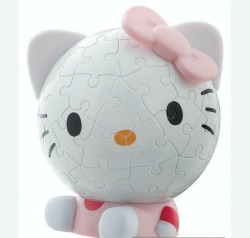
In fact, the Alzheimer Society of Canada reports that doing jigsaw puzzles is one of many activities that can help keep the brain active and may contribute to reducing the risk of developing Alzheimer’s disease.
“Israelis have a culture of doing puzzles,” says Bar-on. “Everyone – Jews, Arabs, secular, religious – does puzzles. It’s about connection, sitting together, making something together. This warmth and family bond is important to Israelis.”
He was really irked when the hit reality show “Big Brother” was keeping families glued to their TV sets rather than doing something educational and cultured. So he offered 35 percent off all puzzles at Puzzleland purchased during the show’s airtime. The unique sales tactic was well received, he says.
Zvia Katz, R&D director at Creative Toys/Orda Group, says the reason so many children do puzzles in Israel is that Israelis invest a lot in their children’s education.
“Puzzles are basic; they’re like memory games. They improve visual perception, deductive reasoning, memory — they teach sequencing,” Katz says. “Puzzles help build children’s social skills and other skills they’ll need for reading and writing, and for playing other games.”
From 2004 until 2010, a national puzzle contest was held in Israel.
Though there was no contest in 2011, Puzzleland’s Bar-on hopes to finish putting the pieces together for an international jigsaw puzzle event he’s preparing for Jerusalem next year.




